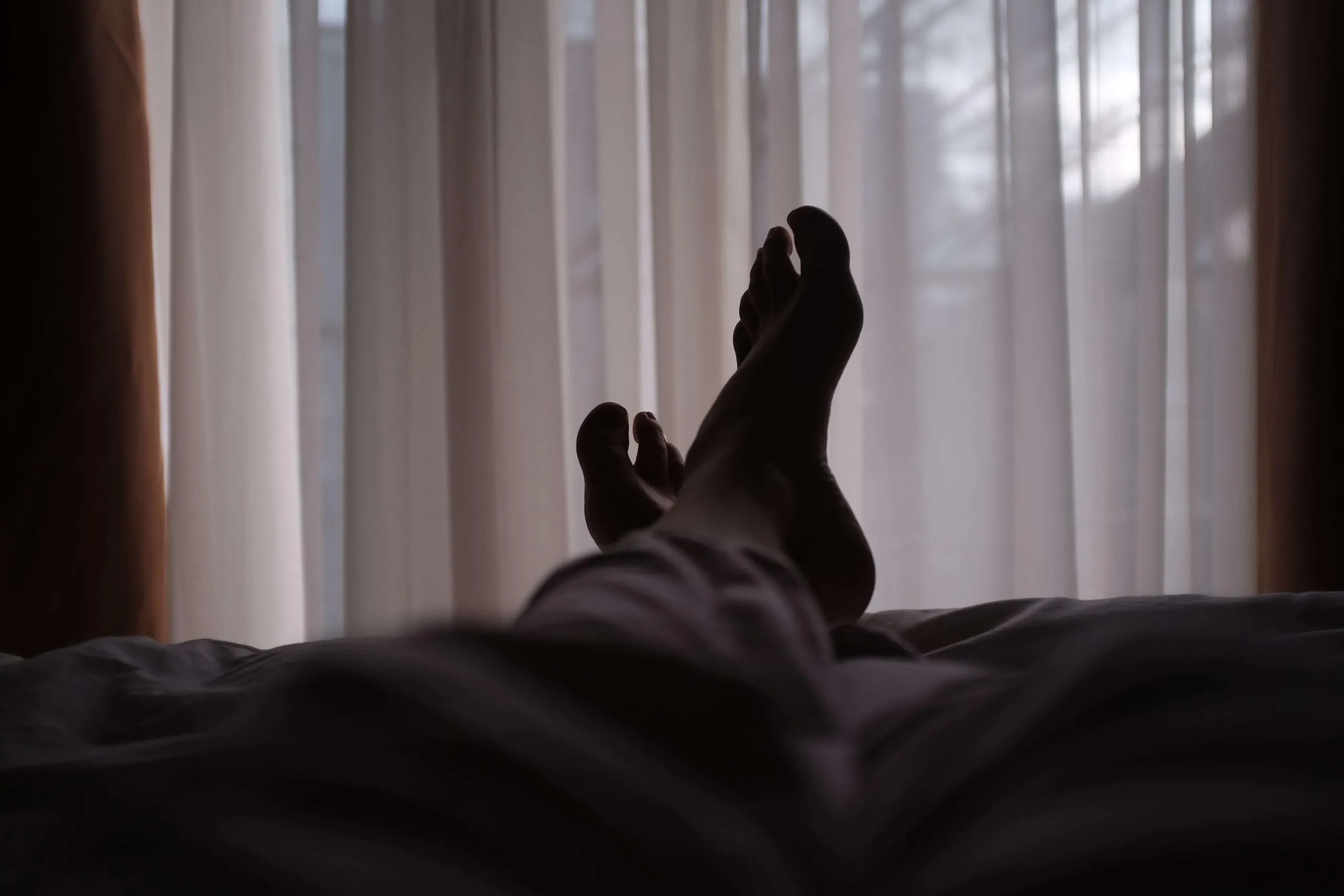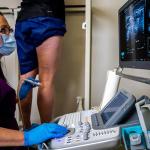
Few things feel more frustrating than those nights that you are fighting to fall asleep. No matter how many times you toss and turn, it seems impossible to find a comfortable position that will allow you to actually go to sleep.
We’ve all been there, and have hoped that it never happens again.
It can be frustrating to not know what it is that is challenging your sleep. Did you drink coffee too late in the day? Did you exercise later in the evening? Are you not feeling well? Or could it be the pain from your varicose veins that are keeping you awake at night?
Here, we answer the question of whether varicose veins can affect your sleep and discuss the ways you can combat varicose vein leg pain at night.
Varicose Veins and Their Affect on Sleep
To answer the big question, yes – the symptoms associated with varicose veins can certainly affect your good night’s sleep. Unfortunately, these symptoms can strike day and night.
Many people find the symptoms of their vein disease can get worse at night when they are at rest and have fewer distractions from leg pain. There can also be additional discomfort from swelling as a result of standing or sitting too long during the day. Discomfort at night can be from cramps, swelling, and itching of the legs or other areas affected by vein disease.
According to a study shared by the National Center for Biotechnology Information, “muscle cramps in patients with varicose veins occur more frequently and more often at night and in the calf in comparison with those from the general population.” Muscle cramps are one of the symptoms often associated with varicose veins, so if you find yourself suffering from them, know that it may be time to see a vein specialist.
Another issue that may be keeping you up at night could be restless leg syndrome (RLS). Healthline defines restless leg syndrome as a condition that “causes unpleasant sensations in the legs, along with a powerful urge to move them.” This uncomfortable sensation typically occurs after sitting or lying down for a long time and gets better when you get up and move around. While there are other symptoms of RLS (including itchiness, creeping, pulling, and tugging), the most prevalent one is the inability to stop moving your legs, hence the name “restless leg syndrome.”
Vein disease can cause a feeling of restlessness very similar to restless leg syndrome, In fact, many of the symptoms of vein disease are similar to RLS such as Itching, throbbing, aching, and cramping. The good news is, unlike RLS, vein disease is easily diagnosed and treated with a high success rate. Be sure to tell your vein specialist about the symptoms you are experiencing.
How to Sleep With Varicose Veins
If your vein disease symptoms have got you down and unable to sleep, don’t worry — there are some options to help you improve your nightly zzzs and help alleviate leg pain and restlessness at night.
Compression Stockings
Wearing compression stockings is a great option for those struggling to sleep due to the symptoms associated with varicose veins. According to the University of Michigan, compression stockings “improve circulation and are a mainstay of treatment for varicose veins that are causing symptoms.” Wearing the compression stockings during the day will provide great benefits. The way the socks work is that they are fitted tight around the foot and loosen as you move up the leg. This helps them do their job of using your lower leg to push the blood back up to the heart and promotes better blood flow in the veins that may be struggling and/or damaged.
As a result of the compression stockings doing some of the work your veins are unable to do on their own, you will find that pain and swelling often go down, and chances are your cramps in your legs will decrease as well.
Sleeping positions
Specific sleeping positions may aid you in sleeping better, despite your varicose vein symptoms. These positions focus primarily on elevating your feet. By putting a pillow under your mattress that raises your legs up about 3-4 inches, you may find decreased swelling in your legs. This sleeping position will help the blood to flow back to your heart thus keep pain and swelling at bay, which in turn means you’ll find yourself able to sleep better.
Hydrate
Drinking plenty of water during the day is another way to keep your vein pain at a minimum at night. Just be sure not to fill yourself up before you go to bed, or else your bladder will keep you up all night.
Stretch
Stretching your muscles throughout the day will help to keep muscles from getting tight at night and will help to promote healthy blood flow through your veins.
Vein Treatment
If you have pain or restlessness in your legs at night, it is time to consider vein treatment. At the first sign of any issues with your veins, it is important that you schedule a consultation with a vein specialist so that they may determine the severity of your vein problems. From there, your doctor will determine what treatment option is best for you.
Access to expert care is convenient with USA Vein Clinics’ nationwide network of clinics. We accept most insurance plans, including Medicare and Medicaid. You can schedule your appointment online to verify your insurance coverage instantly or call 888.768.3467.





